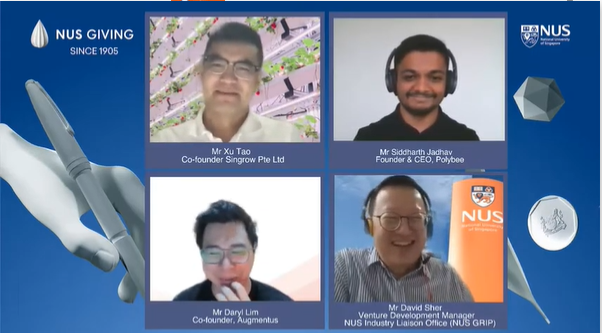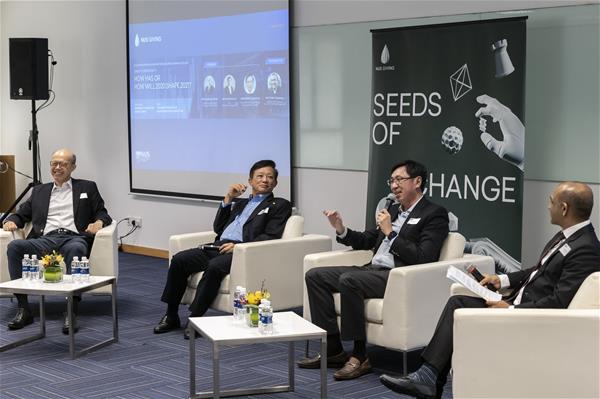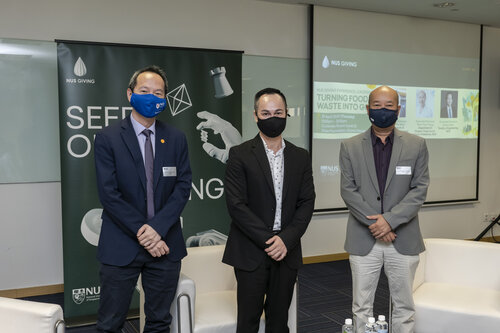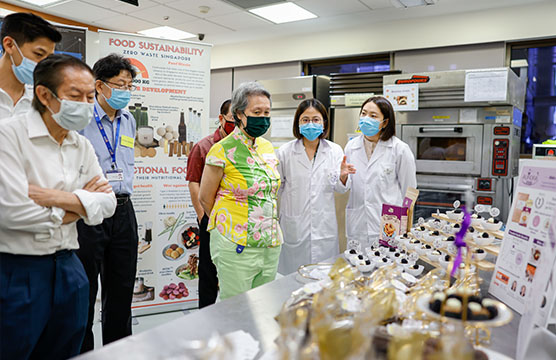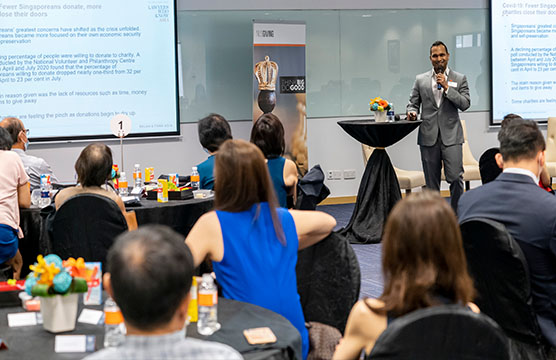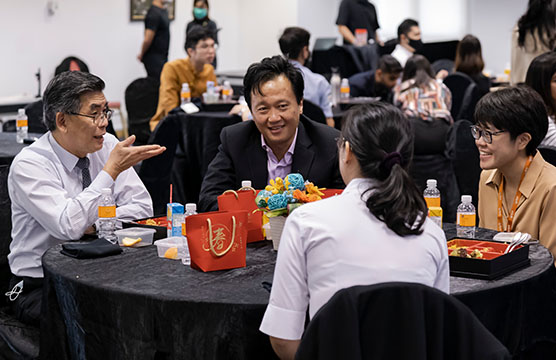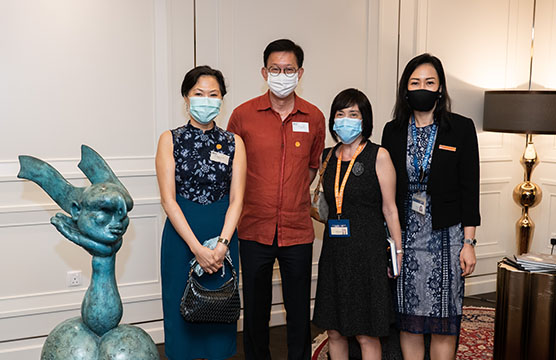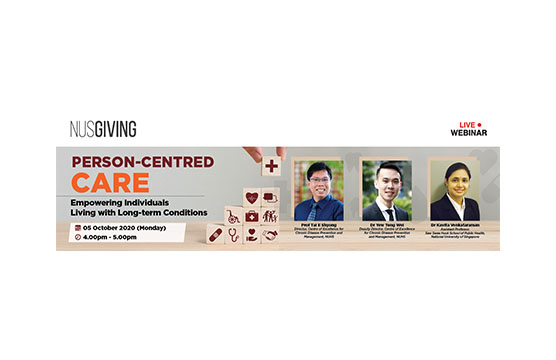NUS Giving Webinar Series – Breaking through the Digital Ceiling: Moving Digitalisation to the Next Level
Apr 20, 2021
The rise of intelligent automation and the flourishing of artificial intelligence has helped businesses break through the digital ceiling and enabled full-scale digital transformations
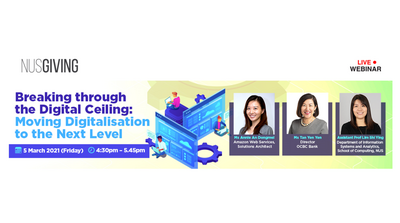
The rise of intelligent automation and the flourishing of artificial intelligence has helped businesses break through the digital ceiling and enabled full-scale digital transformations. With its importance accelerated by the COVID-19 pandemic, the field of computing is becoming increasingly critical in the modern world. Even though the top jobs and opportunities are in computing today, there is still a lack of gender diversity in the technology sector.
During the National University of Singapore (NUS) Giving Webinar Series titled Breaking through the Digital Ceiling: Moving Digitalisation to the Next Level, our panel of speakers shared their experiences as women in the technology sector and how they have pushed the envelope and advanced their roles in intelligent automation, including their challenges and strategies to overcome them.
“As far as women in computing go, there have been many notable women who have been contributing to computing right from the beginning. The world’s very first computer programmer was Lady Ada Lovelace, who wrote the first program in 1843. Fast forward to 2006, Francis Allen was the first female scientist who won the Turing Award, which is the Nobel Prize of Computing,” said Professor Mohan S. Kankanhalli, Dean, NUS School of Computing.
Currently, 32 percent of the undergraduate students at the NUS School of Computing are females. This figure is double the worldwide average which stands at 16 percent.
“We, as a society, are missing out on important contributions because some of the talented women are not coming into computing. We can do better,” Prof Mohan continued.
“When I first started more than three decades ago, the ratio of females to males in the sector is about one to three. Over the past few years however, it is heartening to see more and more female representation in this industry,” remarked Ms Tan Yen Yen, Director, Oversea-Chinese Banking Corporation Bank.
The increased gender diversity in the technology sector was echoed by Ms Annie An Dongmei, Solutions Architect for Southeast Asia, Amazon Web Services, who highlighted that the rise in young female leaders can also help to inspire and encourage more female students and young female professionals to enter and succeed in the industry.
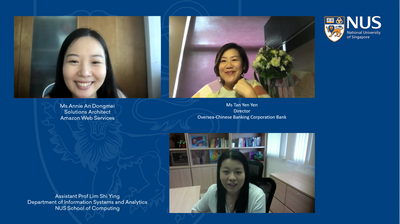
“As women, we bring with us a different perspective and a strong sense of empathy and compassion. With more diversity, businesses are able to better understand and incorporate the needs of our equally diverse customers, partners and users, enabling the creation of more holistic products and services,” elaborated Ms An, who was recently recognised in the inaugural Singapore 100 Women in Tech list, for her contributions to the local tech sector.
With technology playing such an important role in the way we live, work and play, the opportunities are aplenty. The fast-paced, innovative and dynamic industry also has a low barrier to entry because of how easily accessible the tools can be. These unique characteristics are what attracted Ms An to start her career in Information Technology after graduating from the NUS School of Computing.
Both speakers also shared on the challenges as modern women in today’s society and their strategies on balancing work, life and family. Strong family support, adaptive work schedules and collaborative team members are some of the ways that have helped them managed the delicate balance between life and work.
“The great support system in Singapore coupled with our ability to multi-task well as women shows that it doesn’t have to be either one or the other. I’m a big proponent of work-life balance,” Ms Tan emphasised.
On emerging trends to look out for, both speakers agreed that the future lies in machine learning, artificial intelligence and cloud computing. When done right, the benefits include better insights, faster service, reduced human error, increased flexibility and scalability and increased savings and productivity.
“We are living in an exciting time with many opportunities in the technology sector to reinvent the world and where folks from all walks of life can get involved. The socio economic benefits however will require us to rethink the implications for policy-making, regulation, governance of data and more, which is a big part of what we teach the students at the School of Computing,” concluded Assistant Prof Lim Shi Ying, Department of Information Systems and Analytics, NUS School of Computing.
For further information on the NUS Giving Webinar Series, contact the Events team at dvoevents@nus.edu.sg.

